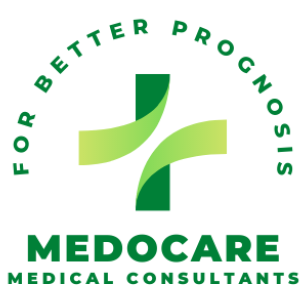Healthcare Business Management
Managing a healthcare business requires a multi-faceted approach and at Medocare, we provide you the coverage for all those aspects
Strategic Planning:
As a medical consultant company managing healthcare businesses, it’s crucial to develop and implement strategic plans that align with the goals and objectives of the healthcare professionals. This includes setting short-term and long-term goals, identifying opportunities for growth, analyzing market trends, and creating strategies to stay competitive in the healthcare industry.
Financial Management:
Managing the financial aspects of healthcare business is critical for sustainability and success. We make sure that you gain the maximum outcome from your practice and we implement cost effective measured to reduce your overhead cost.
Operational Efficiency:
Efficient operations are essential for delivering high-quality healthcare services. This includes optimizing workflow processes, improving patient scheduling, optimizing resource utilization, and implementing technology solutions to streamline operations. Efficient operations lead to improved patient satisfaction, increased staff productivity, and better financial outcomes.
Regulatory Compliance:
Healthcare businesses are subject to numerous regulations and compliance requirements. As a medical consultant company, it’s crucial to stay updated with relevant laws and regulations, such as HIPAA, Medicare, Medicaid, and other local, state, and federal regulations. Ensuring compliance with these regulations is essential to avoid penalties, fines, and legal issues.
Human Resource Management:
Managing the human resources aspect of healthcare business is crucial for attracting, hiring, and retaining qualified staff. This includes recruitment, onboarding, training, performance management, and employee engagement. Healthcare professionals are the backbone of any healthcare business, and ensuring their well-being and job satisfaction is key to the success of the business.
Quality Improvement:
Ensuring high-quality care is delivered to patients is paramount in managing a healthcare business. This includes implementing quality improvement programs, measuring and monitoring key performance indicators (KPIs), analyzing data to identify areas for improvement, and implementing evidence-based practices. Quality improvement efforts lead to improved patient outcomes, increased patient satisfaction, and enhanced reputation for the healthcare business.
Marketing and Business Development:
As a medical consultant company managing healthcare businesses, it’s important to develop effective marketing strategies to promote the services offered by healthcare professionals. This includes creating a strong online presence, developing referral networks, implementing patient engagement strategies, and fostering relationships with other healthcare organizations. Business development efforts are crucial for expanding the patient base, increasing revenue, and enhancing the reputation of the healthcare business.
Risk Management:
Managing risks associated with healthcare businesses is critical to protect the interests of healthcare professionals. This includes identifying and mitigating potential risks, such as medical malpractice, data breaches, and compliance violations. Implementing risk management strategies, including insurance coverage, policies and procedures, and staff training, is essential to minimize risks and protect the healthcare business from potential liabilities.
Patient Experience and Satisfaction:
Patient experience and satisfaction are important factors in managing a healthcare business. Ensuring that patients receive high-quality care in a compassionate and patient-centered manner is essential for patient retention and loyalty. This includes implementing patient feedback mechanisms, addressing patient complaints and concerns, and continuously improving the patient experience to build a strong patient base and enhance the reputation of the healthcare business.
Continuous Education and Professional Development:
Staying updated with the latest advancements in healthcare and continuously improving professional skills and knowledge is crucial for managing a healthcare business. This includes ongoing education and professional development for healthcare professionals, staying updated with industry trends and best practices, and investing in training and development programs to ensure that the healthcare business remains at the forefront of the healthcare.
Book a Free Consultation
- info@medocareconsultants.ca
- medocareconsultants.ca
- Unit 3- 170 Wilkinson Dr, Brampton, ON , L6T4Z5
